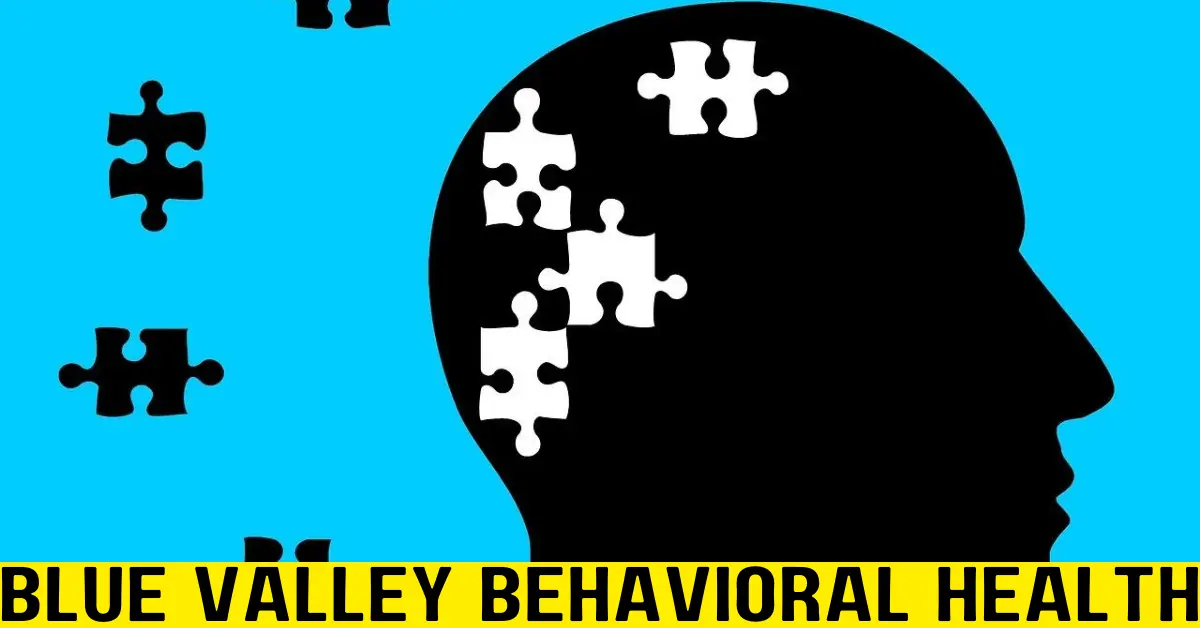“Pure Health Blood Sugar Formula” is a dietary supplement that is marketed as a way to support healthy blood sugar levels. It is made with a blend of 17 natural ingredients, including:
- Chromium
- Berberine
- Cinnamon
- Banaba leaf
- Gymnemate Sylvester
- Fenugreek
- Yarrow
- Juniper berries
- Bilberry
- Licorice root
The manufacturers of Pure Health Blood Sugar Formula claim that these ingredients work together to support healthy blood sugar levels by:
- Improving insulin sensitivity
- Reducing blood sugar absorption
- Increasing insulin production
- Protecting cells from damage caused by high blood sugar
However, it is important to note that there is no scientific evidence to support these claims. The U.S. Food and Drug Administration (FDA) does not evaluate or approve dietary supplements, and they are not intended to diagnose, treat, prevent, or cure any disease.
If you are considering taking Pure “Health Blood Sugar” Formula, it is important to talk to your doctor first. They can help you determine if this supplement is right for you and can monitor your blood sugar levels to make sure they are staying in a healthy range.
Here are some additional things to keep in mind about Pure Health Blood Sugar Formula:
- It is available for purchase online and in some retail stores.
- The typical dosage is one capsule per day.
- There are no known side effects associated with taking Pure Health Blood Sugar Formula.
- However, it is always best to talk to your doctor before starting any new supplement.
I hope this information is helpful. Please let me know if you have any other questions.
What is normal health blood sugar?

Normal blood sugar levels can vary depending on several factors, but here’s a general “Health Blood Sugar” overview:
Fasting blood sugar:
- Normal: Between 70 and 99 mg/dL (3.9 and 5.5 mmol/L) is considered normal for most adults without diabetes.
- Prediabetes: Levels between 100 and 125 mg/dL (5.6 and 6.9 mmol/L) indicate prediabetes.
- Diabetes: A fasting blood sugar level of 126 mg/dL (7.0 mmol/L) or higher on two separate tests usually indicates diabetes.
Blood sugar after eating (2 hours):
- Normal: Less than 140 mg/dL (7.8 mmol/L) is considered normal for most adults without diabetes.
HbA1c test:
- This test reflects your average blood sugar levels over the past 2-3 months. For non-diabetic adults, an HbA1c below 5.7% is considered normal.
It’s important to remember:
- These are general guidelines, and individual ranges may vary based on age, health conditions, medications, and other factors “Health Blood Sugar”.
- Consulting a healthcare professional for personalized advice is crucial, especially if you have concerns about your blood sugar levels.
- Self-diagnosing or treating any medical condition based on internet information is not recommended.
I hope this clarifies the concept of normal blood sugar levels. Please let me know if you have any further questions.
What is balance sugar level?
“Balanced” blood sugar doesn’t have a singular definition as it refers to maintaining health blood sugar levels throughout the day, rather than aiming for a specific fixed number. This means keeping your levels within a desired range, avoiding both highs (hyperglycemia) and lows (hypoglycemia).
Here’s what a balanced approach to blood sugar looks like:
General guidelines:
- Fasting blood sugar: Ideally between 70-99 mg/dL (3.9-5.5 mmol/L) for most adults without diabetes.
- Blood sugar after eating (2 hours): Less than 140 mg/dL (7.8 mmol/L) for most adults without diabetes.
- HbA1c test: This reflects your average blood sugar control over 2-3 months. Below 5.7% is considered normal for non-diabetic adults.
Remember:
- These are general guidelines. Consult your doctor for personalized advice, especially if you have diabetes or prediabetes.
- Blood sugar naturally fluctuates throughout the day due to meals, activity, and other factors.
- The goal is to minimize these fluctuations and keep your levels within a healthy range.
Strategies for balance:
- Diet: Choose balanced meals with complex carbohydrates, healthy fats, and lean protein. Limit processed foods, sugary drinks, and refined carbohydrates.
- Exercise: Regular physical activity improves insulin sensitivity and helps regulate blood sugar.
- Weight management: Maintaining a healthy weight can significantly impact blood sugar levels.
- Stress management: Chronic stress can raise blood sugar. Consider relaxation techniques like yoga or meditation.
- Medications: If you have diabetes, follow your doctor’s medication regimen.
Importance of balance:
Maintaining balanced blood sugar is crucial for overall “Health Blood Sugar”. Uncontrolled highs and lows can lead to various complications, including:
- Increased risk of heart disease, stroke, kidney disease, nerve damage, and vision problems.
- Fatigue, irritability, and difficulty concentrating.
- In severe cases, diabetic ketoacidosis or hypoglycemic coma.
By understanding the concept of balanced blood sugar and implementing healthy lifestyle practices, you can significantly reduce your risk of these complications and improve your overall well-being.
I hope this explanation clarifies the concept of balance sugar level. Please let me know if you have any further questions or require more specific information.
Is Blood Sugar Real sugar?

The answer depends on what you mean by “real sugar.”
Blood sugar, also known as blood glucose, is a specific type of sugar called glucose.
- Glucose is a simple sugar, a monosaccharide, that serves as the main source of energy for most cells in your body.
- When you eat carbohydrates, your body breaks them down into glucose, which is then absorbed into your bloodstream and transported to your cells.
- Insulin, a hormone produced by your pancreas, helps glucose enter your cells for energy use or storage.
Table sugar, which you might consider “real sugar,” is another type of sugar called sucrose.
- Sucrose is a disaccharide, meaning it’s made up of two simpler sugars: glucose and fructose.
- Table sugar is found naturally in fruits and vegetables, but it’s also added to many processed foods.
So, to answer your question:
- Blood sugar (glucose) is a type of sugar, but not table sugar (sucrose).
- Both provide energy, but glucose is essential for all your cells, while table sugar is not.
- Consuming excessive amounts of table sugar can have negative health consequences, while balanced blood sugar levels are crucial for overall health.
I hope this clarifies the difference between blood sugar and table sugar!
Which sugar test is best?
Unfortunately, there isn’t a single “best” sugar test as the most suitable option depends on various factors, including:
Your purpose for testing:
- Diagnosing diabetes: The A1C test is often used initially due to its convenience and ability to provide an average blood sugar level over the past 2-3 months. However, if results are borderline, a fasting blood sugar test or oral glucose tolerance test might be needed for confirmation.
- Monitoring pre-diabetes: Regular fasting blood sugar tests or HbA1c tests might be recommended to track progress and potential risks.
- Managing existing diabetes: Finger-prick tests (using a glucometer) are used for frequent monitoring throughout the day, while HbA1c tests offer longer-term insights. Sometimes, continuous glucose monitoring (CGM) systems may be used for more detailed, real-time tracking.
Your individual health factors:
- Age: Certain tests might be preferred depending on your age group.
- Existing health conditions: If you have other health concerns, specific tests might be more appropriate.
- Pregnancy: Pregnant women typically require specific glucose screening tests.
Therefore, it’s crucial to consult your doctor to determine the most suitable sugar test for you based on your individual needs and circumstances. They can assess your specific situation, risk factors, and goals to recommend the appropriate testing approach.
How much sugar per day?
The recommended amount of sugar you should consume per day depends on several factors, including:
Your total calorie intake: The World Health Organization (WHO) recommends that free sugars (added sugars and sugars naturally present in honey, syrups, and fruit juices) make up less than 10% of your total daily calorie intake. For a 2,000-calorie diet, this would be 50 grams of sugar, or about 12.5 teaspoons.
Your individual health: The American Heart Association recommends even stricter limits: 25 grams per day for women (6 teaspoons) and 36 grams per day for men (9 teaspoons). These limits are even more important if you have certain health conditions like diabetes, heart disease, or obesity.
Other factors: Age, activity level, and overall dietary pattern also play a role. Children and teenagers may have lower recommended sugar intake levels than adults.
It’s important to remember:
- These are just general guidelines. Talk to your doctor or a registered dietitian for personalized advice based on your individual needs and health goals.
- Reducing your sugar intake can be beneficial for everyone, even if you don’t have any health concerns.
- There are many ways to naturally sweeten your foods and drinks without adding extra sugar.
I hope this information helps!
What is normal sugar level by age?

Normal blood sugar levels can vary depending on several factors, including age, health conditions, medications, and the time of day when the measurement is taken. However, here’s a general overview of normal blood sugar ranges by age group:
Fasting blood sugar:
- Children (6-12 years): 80-180 mg/dL (4.4-10.0 mmol/L)
- Teens (13-19 years): 70-180 mg/dL (3.9-10.0 mmol/L)
- Adults (20-64 years): 70-99 mg/dL (3.9-5.5 mmol/L)
- Older adults (65+ years): Individualized targets based on overall health and risk factors, typically slightly higher than younger adults
Blood sugar after eating (2 hours):
- All ages: Less than 140 mg/dL (7.8 mmol/L)
HbA1c test:
- Non-diabetic adults: Below 5.7%
- Prediabetic adults: 5.7% to 6.4%
- Diabetic adults: Individualized targets, typically between 6.5% and 8.0%
Important notes:
- These are general guidelines. Always consult your doctor for personalized advice, especially if you have any concerns about your blood sugar levels.
- Blood sugar naturally fluctuates throughout the day due to meals, activity, and other factors.
- The goal is to minimize these fluctuations and keep your levels within a healthy range for your age and health status.
Remember, self-diagnosing or treating any medical condition based on internet information is not recommended. Always consult a healthcare professional for personalized advice and testing recommendations.
What glucose is high?
Whether glucose is considered high depends on several factors:
The context:
- Fasting blood sugar: For adults without diabetes, a fasting blood sugar level above 125 mg/dL (7.0 mmol/L) is generally considered high.
- Blood sugar after eating (2 hours): For adults without diabetes, a blood sugar level above 140 mg/dL (7.8 mmol/L) two hours after eating is considered high.
- Individual health: People with diabetes have personalized blood sugar targets set by their doctor. High glucose levels for them would vary depending on these targets.
Additional factors:
- Age: Normal blood sugar ranges can vary slightly with age.
- Pregnancy: Pregnant women have different blood sugar thresholds due to physiological changes.
- Medications: Certain medications can affect blood sugar levels.
- Overall health: Underlying health conditions can influence blood sugar ranges.
It’s crucial to consult a “Health Blood Sugar” professional for personalized advice, especially if you have concerns about your blood sugar levels. They can consider your individual health context, risk factors, and specific circumstances to determine what constitutes “high” for you.
Remember, self-diagnosing or treating any medical condition based on internet information is not recommended. Always consult a healthcare professional for personalized advice and testing recommendations.








